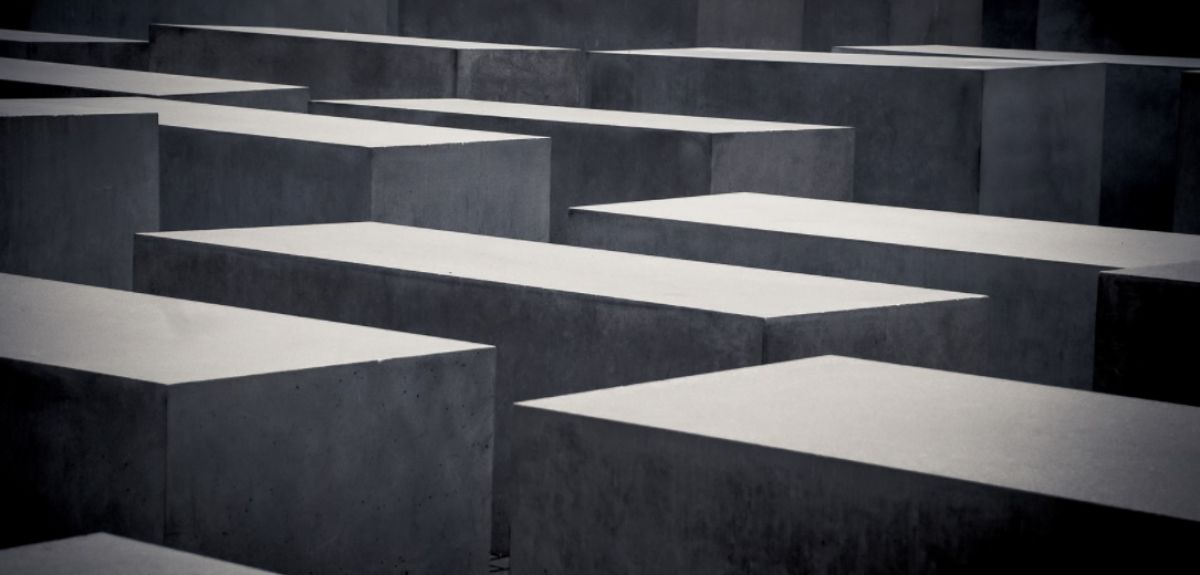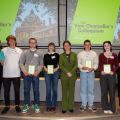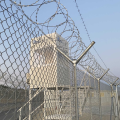
Franz Jachim (Flickr Creative Commons)
Is it better to remember or forget? New seminar series launches on Friday
The first event in a new seminar series about post-war commemoration takes place on Friday evening (20 October).
In a free, public event, the Sierra Leone-British novelist and journalist Aminatta Forna will discuss her search for the truth about the death of her father, and explore questions about commemoration.
One of the organisers is Oxford's Dr Catherine Gilbert, who specialises in sub-Saharan African literatures of conflict and memory. She tells us more about Forna's work in the context of the series:
'Post-War: Commemoration, Reconstruction, Reconciliation' is the theme of a new International Seminar Series being held at the University of Oxford and Oxford Brookes University between October 2017 and June 2018. Funded by the Andrew W. Mellon Foundation, it will explore post-war memorialisation across cultures and consider what the future of commemoration might look like.
Central to national life, commemoration raises difficult questions. Is it better to remember or forget? The cynical history teacher in Alan Bennett’s play The History Boys believes that official remembrance of the war dead 'veils the truth' about those responsible for mass death. 'There is no better way of forgetting something than by commemorating it,' he declares. But what about those for whom there is no commemoration? What about the individuals and societies who want to remember the truth about how and why their loved ones died?
The first speaker in the Series, the Sierra Leone-British novelist and journalist Aminatta Forna, will tackle precisely these questions. Forna was determined to know the truth about the death of her father, the doctor and politician Mohamed Sorie Forna. In her memoir, The Devil that Danced on the Water, she describes the journey she undertook to the country of her childhood to uncover the facts about his execution in 1975.
Forcing herself to speak calmly with those who lied at his trial, she pieces together the last days of her father's life leading up to his hanging on false charges of treason. After 25 years of not knowing, Forna finally discovers where her father’s body was covered in acid and unceremoniously buried.
Forna manages to lift the veil on the past, but at what cost? The knowledge that she had sought for so many years is a heavy burden to bear: 'I had wanted to know and yet the knowledge seemed to defeat me. … To know now, twenty-five years too late, left a feeling of overwhelming powerlessness, of a kind I had never experienced before. I had the knowledge I had desired for so long – and what good did it do?'
This sense of powerlessness is common to many survivors of violent conflict, genocide and human rights violations. Survivors of the 1994 genocide against the Tutsi in Rwanda come to mind here, some of whom have spent more than two decades trying to find out what happened to their loved ones. Not knowing the truth can be torturous, while possessing this knowledge can be an insupportable burden, a burden that must nevertheless be carried for the rest of their lives.
Forna questions what to do with this unbearable knowledge. When she visited the site where her father’s body lies, she asked: 'What did I want to mark my father’s memory now: a headstone? A plaque? A monument? Blocks of stone or concrete that would crumble away in this lonely place?' Instead, she turned to writing: upon her return from Sierra Leone, she says, 'I sat down in my London study and I began to write. His story. My story.' Forna is writing history – both personal and political.
With The Devil that Danced on the Water, Forna has created a form of textual commemoration, both for herself and for others, reconstructing her father’s story so that he can be remembered and the truth about his death can be known. Where there is no grave, no commemorative monument, writing can fulfil this role.
While it may be that commemoration can only ever be partial, only recognising one aspect of a story, not commemorating at all can be equally dangerous and harmful to individuals and groups who seek recognition and truth. Writers like Forna challenge us to engage critically with commemoration, to reflect on our need to remember and to contemplate monuments other than those made of stone.
Aminatta Forna will be speaking at the University of Oxford on Friday 20th October as part of the Seminar Series Post-War: Commemoration, Reconstruction, Reconciliation in collaboration with Oxford Brookes University. The Series is funded by The Andrew W. Mellon Foundation, in memory of John E. Sawyer.
 Landmark study definitively shows that conservation actions are effective at halting and reversing biodiversity loss
Landmark study definitively shows that conservation actions are effective at halting and reversing biodiversity loss
 Researchers find oldest undisputed evidence of Earth’s magnetic field
Researchers find oldest undisputed evidence of Earth’s magnetic field
 Honorary degree recipients for 2024 announced
Honorary degree recipients for 2024 announced
 Vice-Chancellor's innovative cross-curricular programme celebrated
Vice-Chancellor's innovative cross-curricular programme celebrated
 New database sheds light on violence in Greek detention facilities
New database sheds light on violence in Greek detention facilities